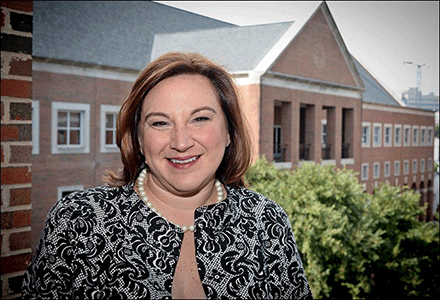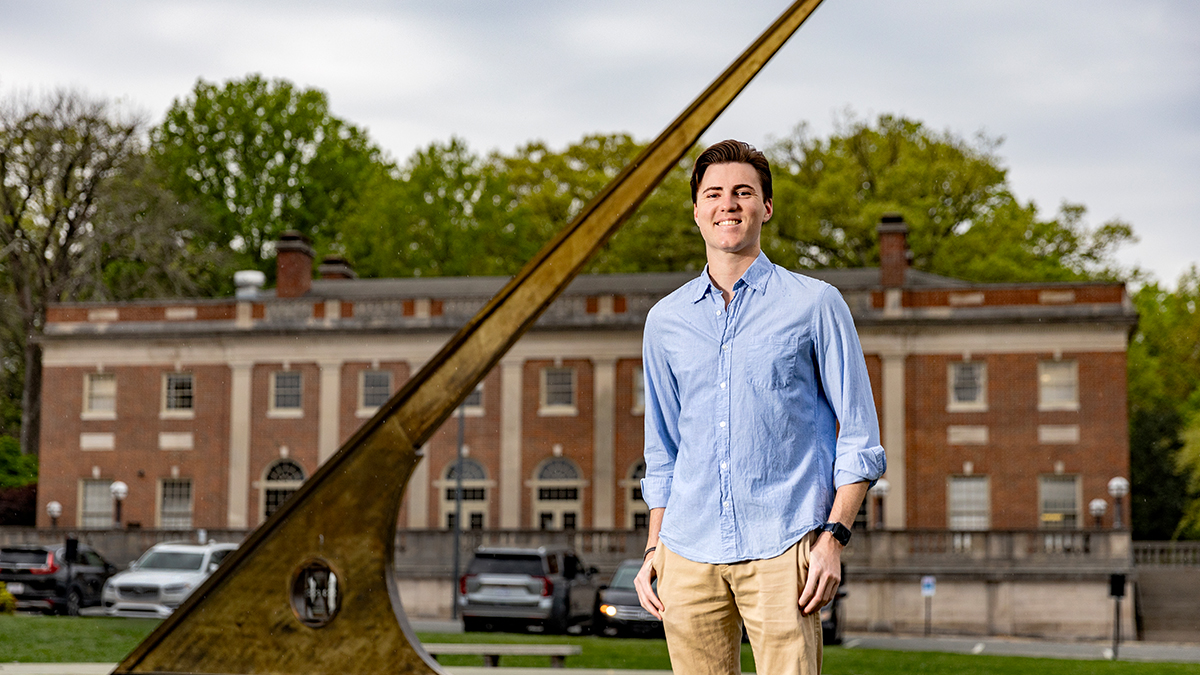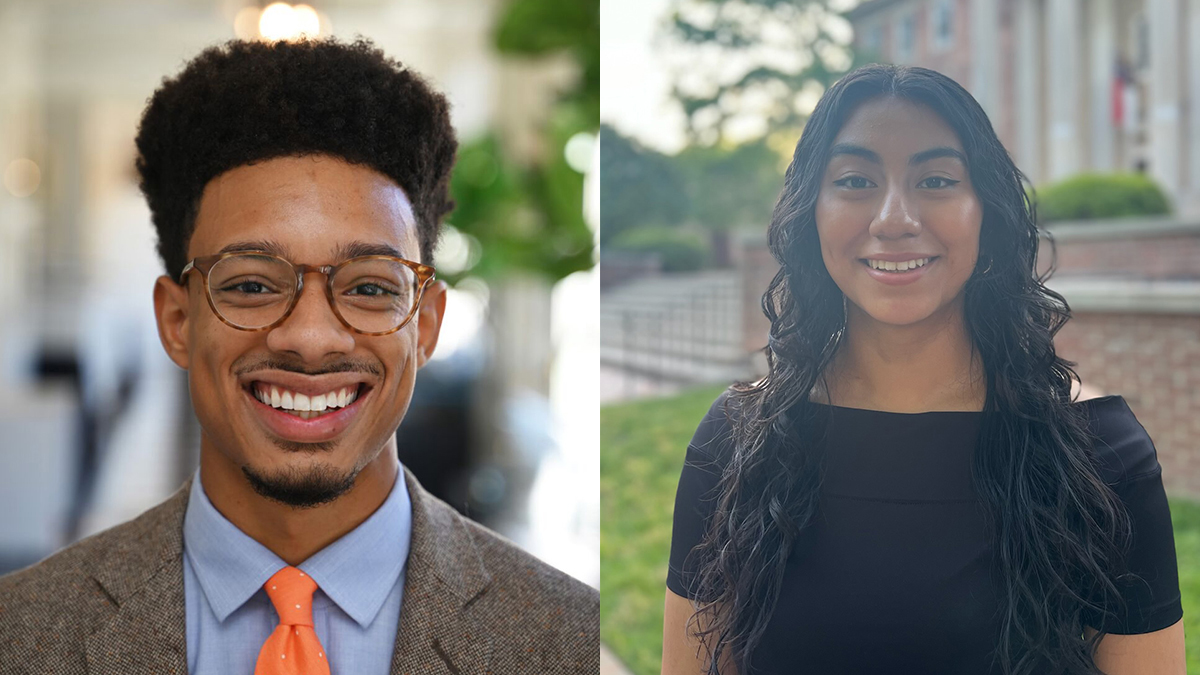When worlds combine, the possibilities are limitless
The UNC Center for Sustainable Enterprise seeks to combine two different worlds: business and environmental sustainability.
In the early days of the environmentalist movement, the line was sharply drawn between the tree-huggers and the suits. People had to choose between the two shades of green – the planet or the money.
But along the way, that line got blurred. Corporations began to see that they could save money and resources through recycling, waste reduction and other environment-friendly practices. Environmentalists realized that sometimes the surest, swiftest route to positive change was not through education or regulation but through the marketplace.
The lesson: Show people how they can make more green by being more green and they will become believers.
On the forefront of that change was Carolina’s Center for Sustainable Enterprise, founded 15 years ago. The center’s first co-directors were business professors Stuart L. Hart and James H. Johnson, now the director of the Urban Investment Strategies Center and William R. Kenan Jr. Distinguished Professor of Strategy and Entrepreneurship.
As one of the first centers at a university to embrace sustainability, the center promoted what is called the “triple bottom line,” a way of balancing the books in three ways: social, environmental and financial. These three divisions are also called the three Ps – people, planet and profit.
The center was once part of the Kenan Institute, but is now housed in Kenan-Flagler Business School, in the strategy and entrepreneurship area. This area is chaired by the center’s longtime faculty director Al Segars, PNC Bank Distinguished Professor and Chair of Strategy and Entrepreneurship. He works with faculty to make sure sustainability is woven throughout the business school curriculum, in courses like sustainable operations or sustainable governance. The center also uses adjunct faculty, who are working professionals with special expertise, to teach about sustainable enterprise.
MBA students can have an enrichment concentration in sustainable enterprise in addition to their chosen career concentration, and undergraduates can minor in sustainable enterprise through the Curriculum for Environment and Ecology. As associate director, Tracy Triggs-Matthews advises students on careers in sustainable and social enterprises.

Carol Hee is director of the Center for Sustainable Enterprise at the Kenan- Flagler Business School.
The director of the center is Carol Hee, one of the business school faculty members dedicated to sustainability. She was also one of those idealistic young environmentalists of the 1970s – the decade that saw the creation of Earth Day and the Environmental Protection Agency.
“When I was really young, I always wanted to do something with my life that would make the world a better place,” she said.
By the fifth grade, she had her career mapped out. She would get a doctorate in the relatively new field of environmental science and teach science with a focus on nature.
Hee came to UNC to study marine science and got her Ph.D. in biogeochemistry, which she said “uses the lens of chemistry to understand the interaction between living things and the Earth.” But almost as soon as she qualified to teach about the environment, Hee said she felt that the educational process was too slow to make a real difference. She joined the EPA as a science communicator, believing that regulation was the catalyst for change.
After a while, though, she realized the power that business had and decided to go back to Carolina, this time to get an MBA.
“The triple bottom line is like a pair of glasses that you look out and see the world, the challenges and opportunities,” Hee said. “The lens of sustainability can help you be innovative and entrepreneurial – seeing business opportunities where you hadn’t before. So that creates the opportunity to create new products, expand to new markets, create new business models and new ways of making money you wouldn’t have thought of before.”
The Center for Sustainable Enterprise, as its name suggests, focuses on social entrepreneurship.
One success story is Firsthand Foods, a company that matches small local farmers who raise cows and pigs in a sustainable way with area restaurants and retailers interested in top-quality meat products. Firsthand’s co-CEO Tina Prevatte is a former EPA employee like Hee, who came to Kenan-Flagler because of the center and her interest in the triple bottom line.
During a summer internship, one of Prevatte’s sustainability consulting clients was N.C. Choices, an organization providing technical and marketing help for farmers. Prevatte and former N.C. Choices director Jennifer Curtis discussed how the group provided valuable resources for farmers to market their products to consumers and chefs, but didn’t quite bridge the gap between production and sales.
“There was nobody in the middle making that happen,” Prevatte said. “We both kept saying, ‘Somebody needs to do something. This is a problem that needs to be solved.’ And finally we said, ‘Why don’t we do this?’”
They took their idea to Carolina’s Launch the Venture course to refine a business plan and wound up creating Firsthand Foods and becoming co-CEOs of the company.
“Our whole business model is built on sustainability,” Prevatte said. “Sustainability is at its core.”
While many of the center’s graduates have formed their own companies, many others have brought their sustainability sensibilities to established companies that want to go greener, including IBM, Hershey’s, Pfizer, DuPont, Procter and Gamble, and Johnson and Johnson.
Other graduates are employed by major audit firms including PricewaterhouseCoopers, Deloitte, and Ernst and Young. “Most large companies and some small companies are doing sustainability reports,” Hee explained. “Big accounting firms are responsible for doing audits of those sustainability reports.”
A growing source of jobs in the sustainability field is clean tech, using technology that also has an environmental benefit: renewable energy, energy efficiency, smart meters, to name a few.
“North Carolina has the fastest growth in clean tech in the country,” Hee said. “We’ve added more clean tech jobs here than anywhere else.”
To build on that momentum, the center and the Institute for the Environment are co-hosting the North Carolina Clean Tech Summit, Feb. 19–20, at the Friday Center. The event has a decidedly military emphasis, with retired Army Gen. Wesley K. Clark as the keynote speaker and an agenda that includes a session on “the military as a driver of renewable energy.”
Hee said she is convinced that sustainability is key to 21st-century jobs. “Everybody needs to be thinking about it, no matter what kind of careers they think they’re going to get,” she said.
After all, you might grow up thinking you’re going to teach people about nature and wind up helping them start their own companies.
“At the end of the day,” Hee said, “I’m doing exactly what I always dreamed I would do in a much more exciting and important place than I ever thought possible.”




